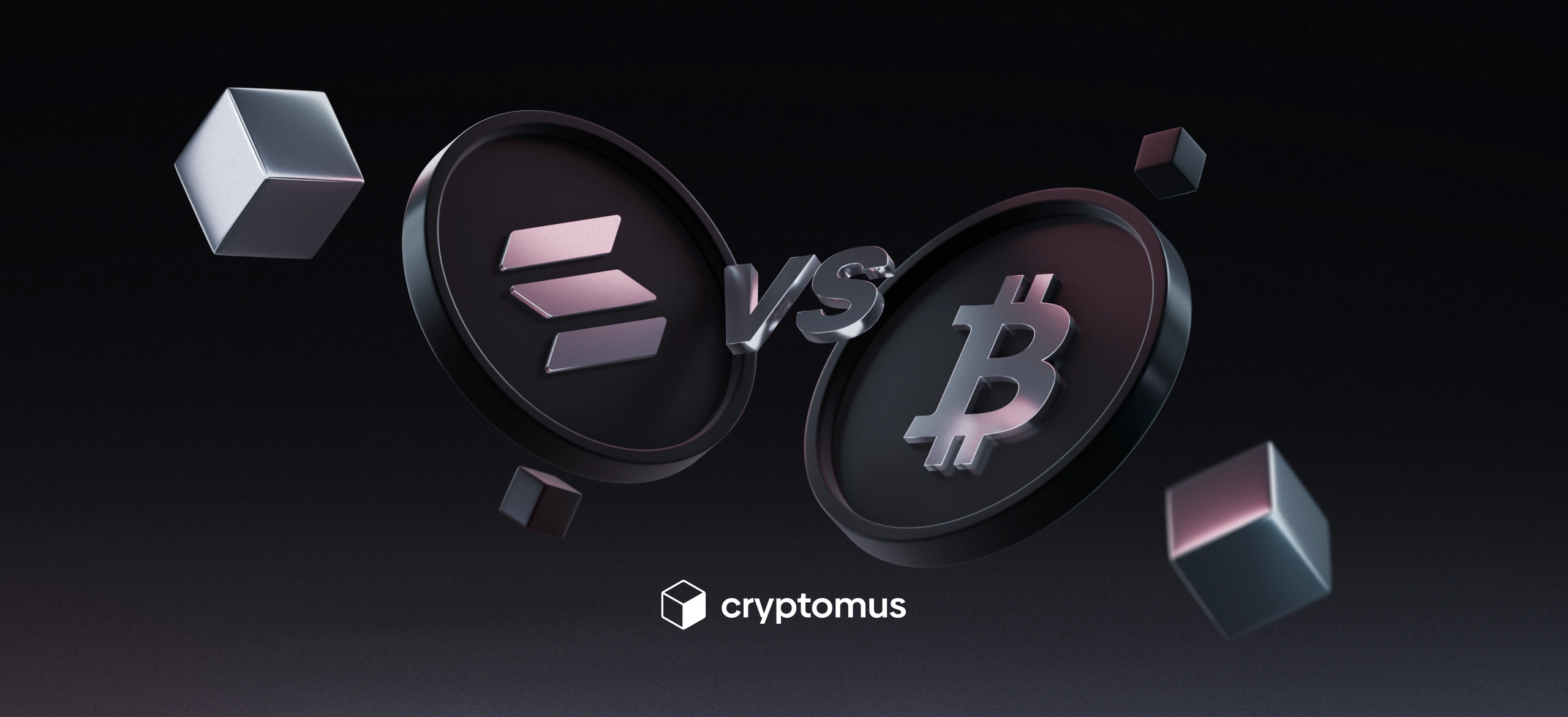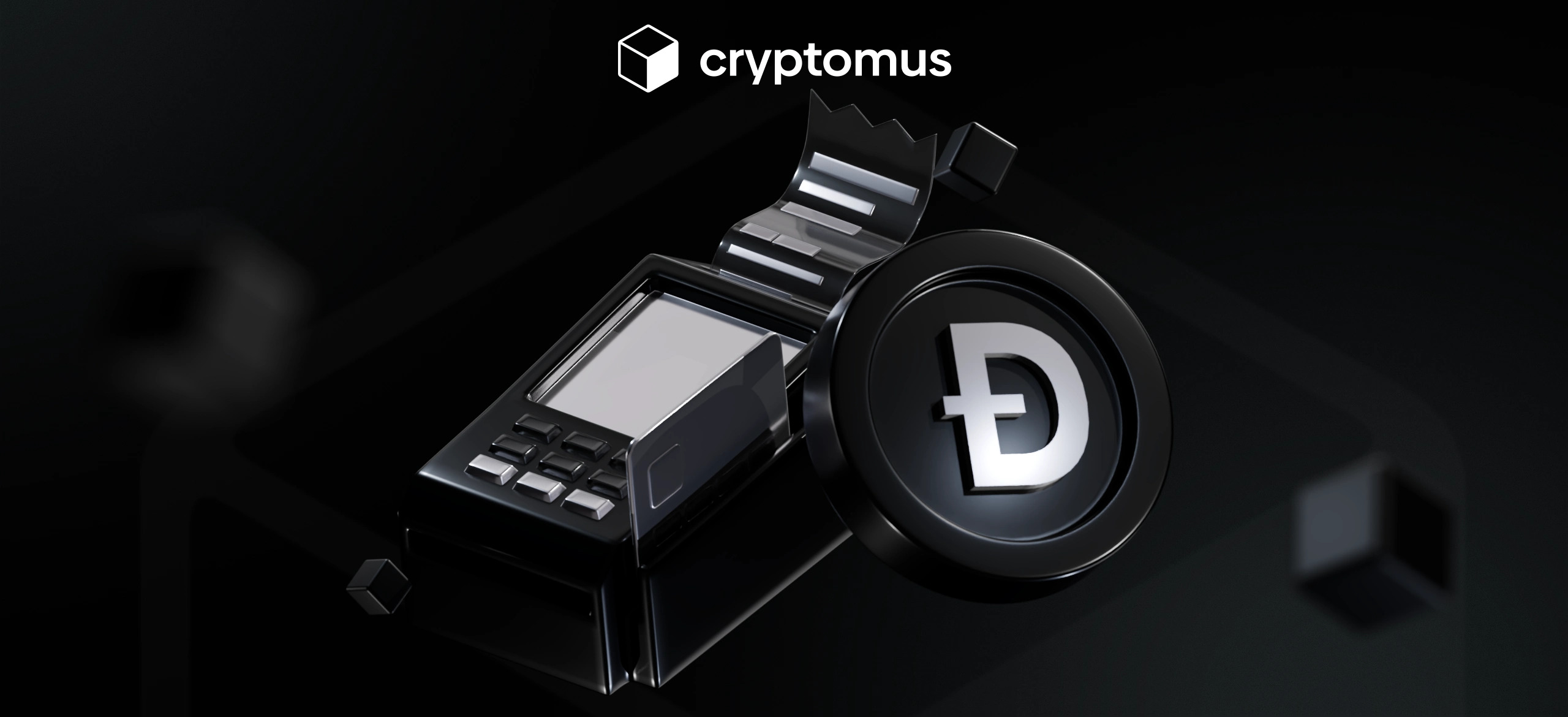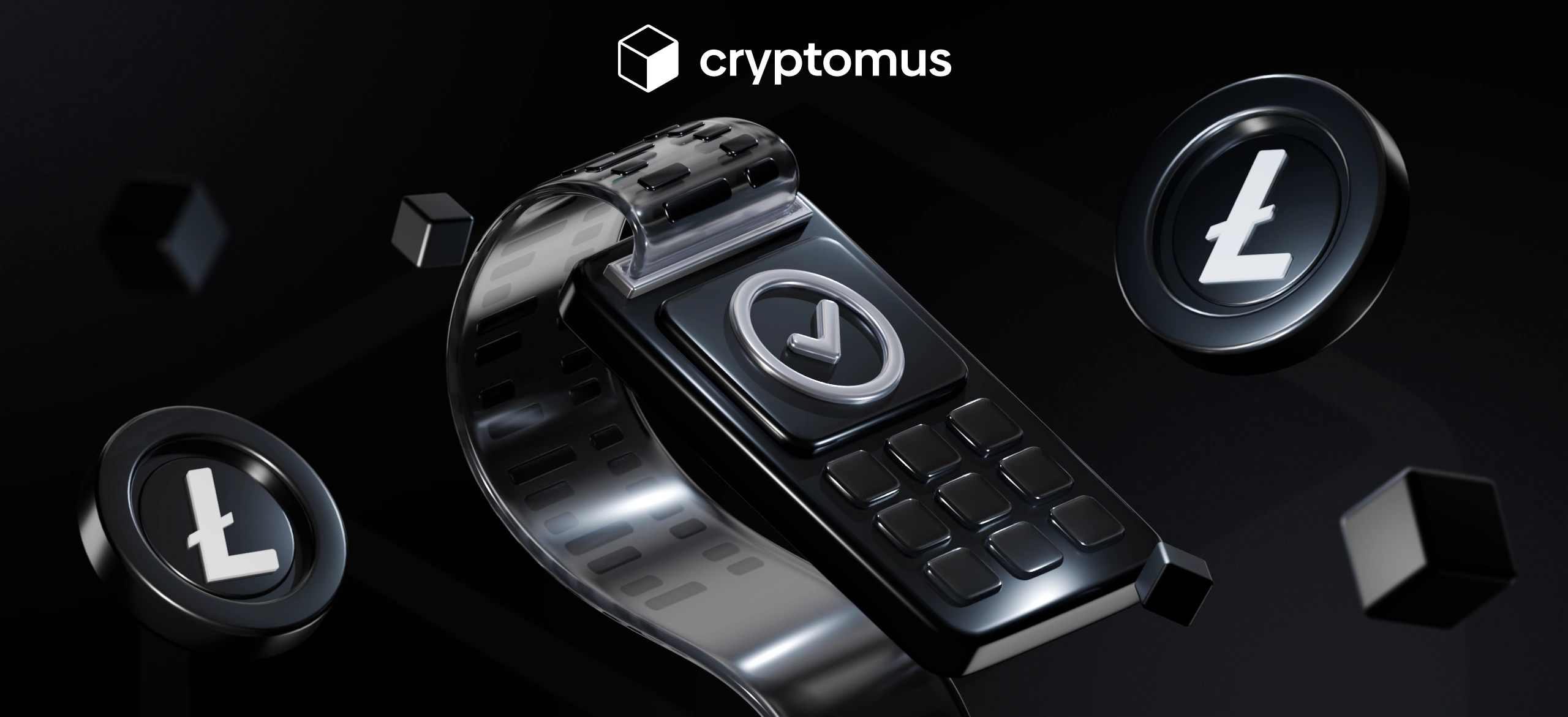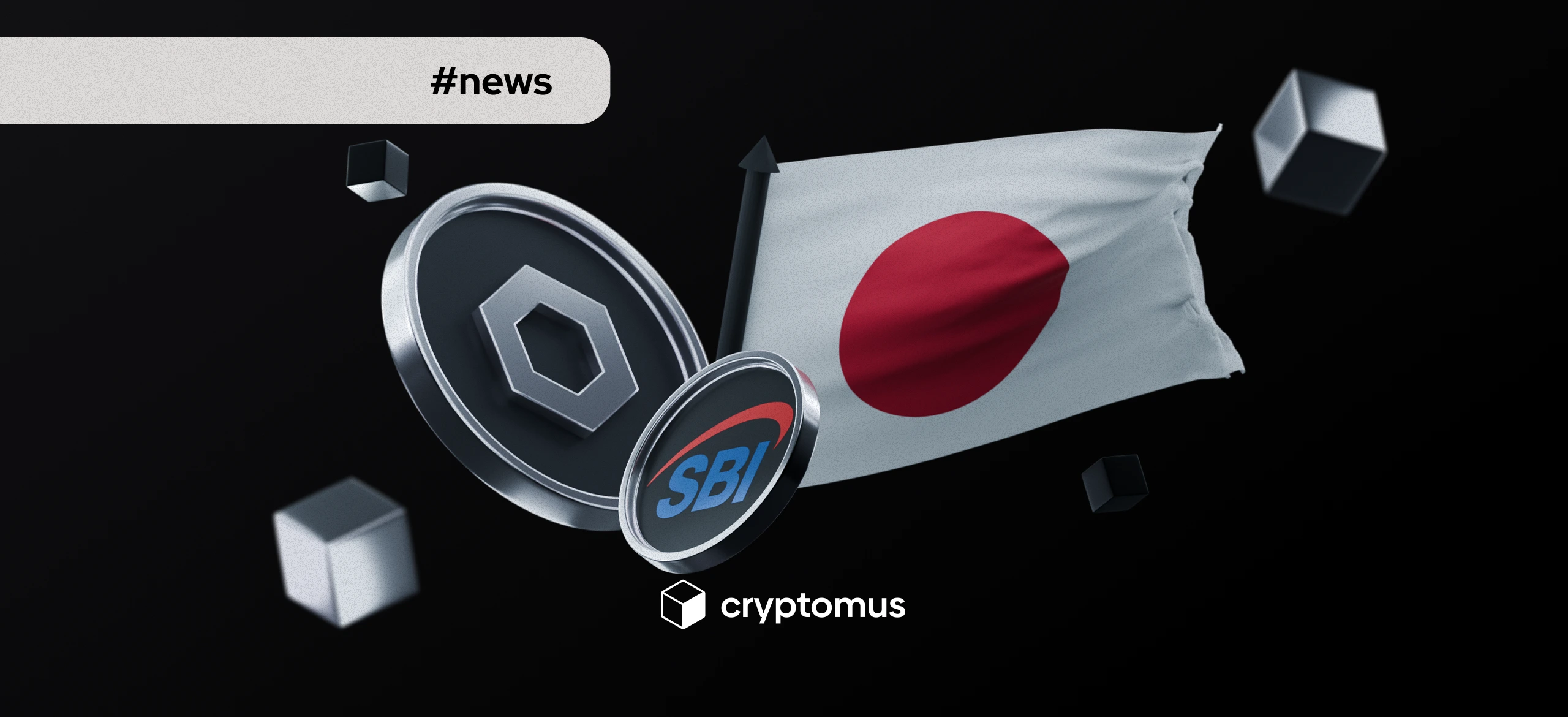
Bitcoin Vs. Solana: Complete Comparison
Table of Contents
As the crypto space evolves, investors are constantly comparing older, established cryptocurrencies with newer, more innovative projects. Bitcoin and Solana are two such assets that represent entirely different visions of blockchain technology. While Bitcoin is the pioneer of decentralized finance and the digital gold standard, Solana offers a highly scalable platform built for speed and smart contract deployment.
In this article, we’ll take a deep dive into what makes Bitcoin and Solana unique, highlight their major differences, and explore which one might be the better investment depending on your goals and risk tolerance.
What Is Bitcoin (BTC)?
Bitcoin, launched in 2009 by the pseudonymous Satoshi Nakamoto, is the first cryptocurrency, designed as a decentralized digital currency that operates without a central authority. It uses blockchain technology, a distributed ledger that records all transactions across a network of computers (nodes). Bitcoin transactions are verified by miners through a consensus mechanism called Proof-of-Work (PoW), which requires miners to solve complex mathematical problems to add new blocks to the blockchain. With a fixed supply of 21 million coins, Bitcoin has become increasingly viewed as a store of value, often referred to as "digital gold."
Although Bitcoin remains a highly speculative and volatile asset, its limited supply and long-term upward price trend make it an attractive option for hedging against inflation. Its decentralized nature and independence from traditional financial systems continue to draw interest from investors. However, Bitcoin faces criticism for its slower transaction speed, processing around 7 transactions per second (TPS), and high energy consumption due to mining activities.
Despite these challenges, Bitcoin remains the most well-known and widely recognized cryptocurrency, with unmatched security, market dominance, and liquidity. Its ability to provide a transparent and secure alternative to traditional financial systems, combined with its PoW mechanism, has helped it maintain a leading position in the crypto market.
What is Solana (SOL)?
Solana is a next-generation blockchain platform launched in 2020, focused on high-speed transactions and low fees. It uses a unique combination of consensus mechanisms — Proof-of-History (PoH) and Proof-of-Stake (PoS) — to achieve impressive scalability, processing up to 65,000 transactions per second. These features have made Solana a popular choice for developers building decentralized applications (dApps), NFTs, and DeFi platforms.
Solana was designed with a focus on supporting smart contracts and flexible programmability, allowing for the creation of complex and scalable solutions. Its native token, SOL, plays a key role in staking, paying transaction fees, and participating in network governance. The Solana ecosystem is growing rapidly, attracting more developers and users.
However, despite its high performance, Solana has not yet demonstrated all the traits that would allow it to claim the role of the "future Bitcoin." The platform still faces challenges, such as occasional network outages and concerns over centralization, which raise doubts about its long-term stability and security.

Key Differences
Now, let's explore the key differences between Bitcoin and Solana to better understand how each platform stands out in the blockchain space.
Factor №1: Speed And Scalability
When it comes to speed and throughput, Solana is significantly faster than Bitcoin. Solana can process up to 65,000 transactions per second, far outpacing Bitcoin’s 7 TPS. This high throughput, combined with minimal fees, makes Solana ideal for applications requiring real-time interaction, such as gaming or trading platforms. Its sub-second finality ensures that users don’t have to wait long for transaction confirmation.
Bitcoin, by contrast, processes transactions more slowly, with confirmation times averaging around 10 minutes or longer. Fees can also spike during periods of high demand. While the Bitcoin Lightning Network aims to address some of these issues, it remains a separate layer with its own set of challenges and adoption curve.
Factor №2: Use Сases And Ecosystem
Bitcoin is primarily used as a store of value and a means of transferring value across borders. It has limited programmability and isn’t designed to support smart contracts or complex decentralized applications. Its ecosystem is relatively narrow but incredibly strong in terms of global adoption, brand trust, and institutional investment.
Solana, meanwhile, supports a wide range of use cases, including DeFi, NFTs, gaming, and enterprise applications. Its developer-friendly environment and low fees have made it a favorite for launching new projects. The Solana ecosystem is dynamic and growing rapidly, but it’s still catching up to the network effects and recognition that Bitcoin has.
Factor №3: Security And Decentralization
Bitcoin is widely regarded as the most secure and decentralized blockchain network. Its massive network of miners around the world helps protect it from attacks and ensure consistent operation. The simplicity of its protocol and years of uptime make Bitcoin the most trusted cryptocurrency in terms of reliability.
Solana offers a different security model that relies on a smaller number of validators and a more complex protocol. While it’s faster and cheaper, this design has led to network outages and concerns about centralization. Additionally, Solana has faced incidents of significant security breaches, including a major hack in 2022, where hundreds of millions of dollars worth of assets were stolen due to vulnerabilities in its ecosystem. Although developers are actively working to improve the system, Solana has not yet reached the same level of trust and resilience as Bitcoin.
Which Is The Better Buy?
Choosing between Bitcoin and Solana depends on your investment goals, risk tolerance, and the kind of exposure you seek in the crypto space. Bitcoin is the gold standard for long-term value preservation, security, and decentralization. With its limited supply and institutional support, it offers a safer, more stable option, making it ideal for those focused on capital preservation and resistance to market manipulation, especially in uncertain economic times.
On the other hand, Solana provides faster transaction speeds and lower fees, making it an attractive option for those interested in the broader Web3, DeFi, and NFT ecosystems. While it’s riskier, Solana offers high growth potential due to its innovative design and scalability. A balanced approach might involve holding both Bitcoin for stability and Solana for exposure to emerging technologies and high-growth opportunities.
Head-To-Head Comparison
We’ve highlighted the key differences between BTC and SOL so you can directly compare these two major cryptocurrencies:
| Feature | Bitcoin (BTC) | Solana (SOL) | |
|---|---|---|---|
| Launch Year | 2009 | 2020 | |
| Total Supply | 21M coins | 582.3M tokens | |
| Consensus Mechanism | Proof-of-Work (PoW) | Proof-of-History (PoH) + Proof-of-Stake (PoS) | |
| Transaction Speed | ~10 Minutes | ~10 Seconds | |
| Fees | $1–$5+ (variable) | ~$0.001 | |
| Scalability | ~7 TPS | ~50,000 TPS | |
| Use Cases | Store of value, payment | DeFi, NFTs, gaming, high-frequency trading | |
| Smart Contract Compatibility | Limited (via Layer-2 only) | Native (Rust-based) | |
| Decentralization | Highly decentralized | Less decentralized |
Bitcoin and Solana each have their unique advantages, catering to different investment goals and use cases. Bitcoin stands as the most secure and decentralized cryptocurrency, making it the ideal choice for those seeking long-term value preservation and stability. Solana, on the other hand, shines with its fast transaction speeds, low fees, and scalability, making it a top choice for decentralized applications, NFTs, and the rapidly growing DeFi space. While riskier, it offers high growth potential for those seeking exposure to the next generation of blockchain innovation.
Ultimately, the "better" choice depends on what you're looking for in a blockchain investment, and both assets have their place in a well-rounded crypto portfolio.
Thank you for reading! Feel free to reach out with any questions or thoughts you may have about Bitcoin, Solana, or blockchain in general.
Simplify Your Crypto Journey
Want to store, send, accept, stake, or trade cryptocurrencies? With Cryptomus it's all possible — sign up and manage your cryptocurrency funds with our handy tools.
Get Started









